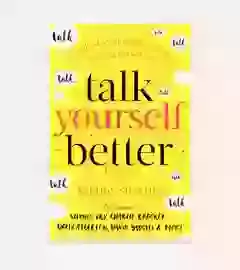How To Find A Good Therapist
Ariane Sherine is a comedy writer, journalist and author of Talk Yourself Better: A Confused Person’s Guide to Therapy, Counselling and Self-Help. She offers her top five tips for trying therapy for the first time and how to find a good therapist.
So, you’d like to try therapy – or maybe you’ve already tried it but want to find a new therapist. It can be very confusing. With tens of thousands of practitioners out there and numerous therapeutic approaches, where should you start? Here are some tips.
1. Work out how you want to access therapy
Therapy via the NHS is usually free, while private therapy can be very expensive, typically ranging from £30 to £100 per 50-minute session. The upside of going private is that you get a lot of choice. Therapy on the NHS is a bit like an arranged marriage: there are some brilliant therapists, but you get what you’re given. If it doesn’t work out, you have to start from square one at the bottom of the waiting list.
Waiting lists can be long, while if you go private you could be seen far sooner. Some areas of the country don’t even offer individual therapy unless you’re experiencing severe depression or anxiety. This means you may be asked to join group sessions instead. You generally don’t get a choice as to which therapeutic approach you receive, either.
To access therapy via the NHS, visit your GP and explain the issue that has prompted you to seek help. If you’re experiencing anxiety or depression, your doctor will probably refer you for therapy (often CBT). They may suggest that you try medication, too, or offer it instead of counselling.
2. If going private, do your research
There are at least 35 types of therapy available in the UK. It can be difficult to work out how each is unique and can help you. That’s why I wrote a book explaining what each different form of therapy does. Each chapter deals with a different approach and contains an interview with a client who has experienced that type of therapy and a counsellor who practises it.
To avoid spending money unnecessarily, it’s essential to find out what a particular form of therapy entails before trying it. For instance, if you don’t feel able to talk about your past but want to learn about practical solutions to improve your future, you’d be better off having CBT and not psychoanalysis. However, if you’d rather gain insight into your past and learn how it’s affecting your present, the reverse is true.
3. Always use accredited sources
The two main UK therapy organisations, the BACP (British Association of Counselling and Psychotherapy) and UKCP (United Kingdom Council of Psychotherapy) verify therapists’ details. They ensure therapists wishing to join their registers hold valid qualifications and meet the requirements to practice. These organisations should always be the first port of call when trying to find a private therapist. Therapists pay to register and set up a profile on their sites, meaning it’s easy for you to browse accredited practitioners. There are also respected websites for each type of therapy, such as the BABCP for CBT therapists, but most therapists will be registered with the BACP or UKCP too.
4. Browse therapists’ profiles carefully
Once you know what kind of therapy you’d like to try, it’s time to look through potential therapists’ profiles and draw up a shortlist. A therapist with a complete profile, including a photo, sufficient text to get an idea of what they’re like, and minimal typos is always reassuring. Read through what they say and see whether it appeals to you.
Try to find a therapist near you, as you’ll probably be seeing them every week and don’t want to be late due to journey delays. You might also want to check on their profile that they’re experienced in dealing with the issue(s) you’re struggling with.
5. Have some consultations
Many therapists offer a free or reduced-price first session to see whether you both want to work together. Use this session to ask any questions you may have. The therapist may ask you to sign a contract, provide contact details and the details of your GP, and explain about confidentiality. You’ll probably be asked to explain what has prompted you to seek help, and will learn what their therapeutic style is.
Don’t feel under pressure to decide straight away whether the therapist is for you. Take some time to think about whether you want to commit to a course of sessions. Do you feel understood, empathised with and gently challenged? If so, you may have found a good therapist.




